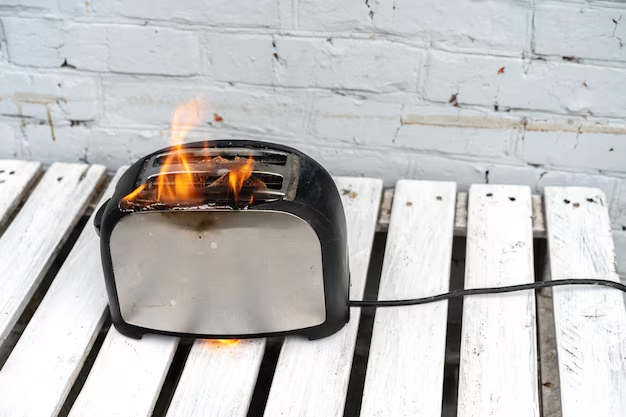Cooking Heaters: The Essential Guide to Choosing

Introduction:
Cooking heater are a fundamental tool in every kitchen, offering both convenience and efficiency. Whether you’re using gas, electric, or induction models, selecting the right cooking heater can significantly impact your cooking heater experience and energy efficiency. In this guide, we will explore various types of cooking heater, their advantages, and how to choose the best one for your cooking needs.
1. Types of Cooking Heaters
There are several types of cooking heater available, each with its own set of benefits and features. The most common types are:
- Gas Heaters: These are the traditional and widely used cooking heaters. They provide immediate heat control and are energy-efficient. However, they may require a gas supply and proper ventilation.
- Electric Heaters: Electric cooking heaters offer convenience and are easy to use. They come in a variety of forms, such as coil burners, smooth-top stoves, and electric ovens. However, they can consume more energy than gas models.
- Induction Heaters: Induction cooking uses electromagnetic energy to heat pots and pans directly. This provides rapid heating and better energy efficiency compared to other electric models. Induction heaters also allow precise temperature control.
- Portable Cooking Heaters: These heaters are great for camping, outdoor events, or smaller spaces. They can be powered by gas, electricity, or even butane.
2. Advantages of Cooking Heaters
Each type of cooking heater has its own set of advantages. Here’s a breakdown:
- Gas Heaters:
- Immediate heat and easy temperature control.
- Lower energy cost compared to electric models.
- Works during power outages (for gas-powered stoves).
- Electric Heaters:
- Simple to use with automatic temperature settings.
- More energy-efficient in some cases compared to older gas models.
- Available in various styles and sizes to fit different kitchens.
- Induction Heaters:
- Extremely energy-efficient due to direct heating of the cookware.
- Cools down quickly after use, reducing residual heat in the kitchen.
- Allows for precise cooking temperature control.
- Portable Cooking Heaters:
- Easy to move around and set up in different locations.
- Perfect for outdoor cooking, camping, or smaller kitchens.
- Can run on various fuel types, providing versatility.
3. Choosing the Right Cooking Heater for Your Kitchen
When choosing the best cooking heater for your needs, consider the following factors:
- Cooking Style:
Do you prefer cooking with high heat (like stir-frying), or do you need consistent, lower temperatures for slow cooking? Induction heaters excel at fast, high-heat cooking, while electric heaters may be better for more gentle cooking. - Energy Efficiency:
Induction and gas heaters tend to be more energy-efficient, but electric models can also offer energy savings if you choose the right one for your needs. - Space and Portability:
If you have a small kitchen, consider portable or compact cooking heaters. If you’re planning to cook outdoors or travel, a portable gas heater may be ideal. - Budget:
The cost of cooking heaters can vary widely. Gas heaters typically have lower upfront costs, while induction models may be more expensive but could save you money on energy bills in the long run.
4. Maintenance and Care for Cooking Heaters

Proper maintenance is crucial for ensuring the longevity of your cooking heater. Here are a few maintenance tips:
- Gas Heaters:
Regularly clean the burner heads and check for gas leaks. Ensure proper ventilation to avoid carbon monoxide buildup. - Electric Heaters:
Keep coils or ceramic tops clean and free from spills. For smooth-top stoves, use a non-abrasive cleaner to avoid scratching. - Induction Heaters:
Wipe down the surface with a soft cloth and avoid using rough sponges. Induction cooktops should be cleaned after every use to maintain efficiency. - Portable Heaters:
Clean the burner and storage areas regularly. Follow manufacturer instructions for fuel handling, especially when using gas or butane.
5. Safety Considerations When Using Cooking Heaters
Safety is key when using any cooking heater. Here are some important tips:
- Gas Heaters:
Ensure that gas lines are installed correctly and check for leaks periodically. Always turn off the gas supply when not in use. - Electric Heaters:
Avoid overloading circuits and ensure the wiring is intact. Use proper cookware to avoid damaging the heating elements. - Induction Heaters:
Induction cooktops stay cooler to the touch, but you should still avoid touching hot cookware or overheating the cookware. - Portable Heaters:
Always use portable cooking heaters in well-ventilated areas. Never leave them unattended while in use, and be cautious of fuel usage.
6. Energy Efficiency and Environmental Impact
Cooking heaters can have a significant impact on both your energy bills and the environment. Here’s how to make eco-friendly choices:
- Induction Heaters:
Known for their energy efficiency, induction heaters convert almost all the electricity they use into heat, minimizing waste. - Gas Heaters:
Gas heaters are efficient for cooking but contribute to greenhouse gas emissions. You can offset some of this by using energy-efficient gas appliances. - Electric Heaters:
Electric stoves are less efficient compared to gas or induction, but their environmental impact depends on the source of electricity in your area (renewable vs. fossil fuels). - Portable Heaters:
Choose portable heaters that use clean fuels like butane or propane, as these tend to have a lower environmental footprint than conventional electric models.
Conclusion:
Selecting the right cooking heater is crucial to creating an efficient and enjoyable cooking environment. By considering factors like energy efficiency, cooking style, space, and budget, you can find the perfect heater that matches your needs. Regular maintenance and adherence to safety guidelines will help ensure your cooking heater provides reliable service for years to come. Whether you’re cooking at home or on the go, there’s a cooking heater that will meet your specific requirements.



